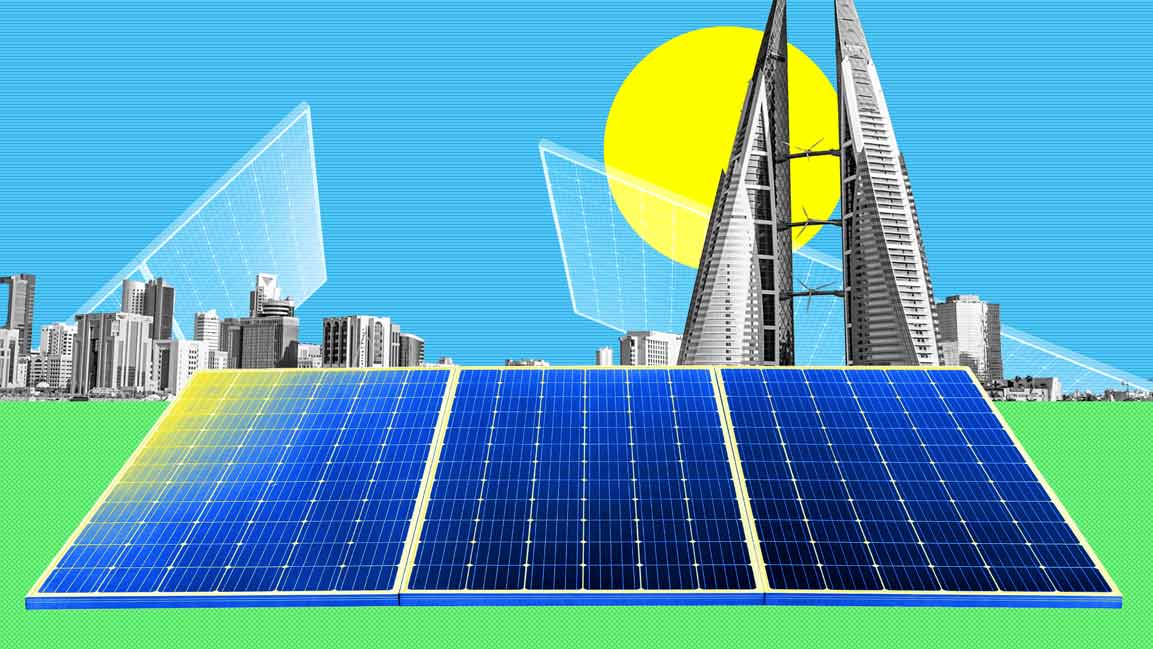- | 10:00 am
What does Bahrain’s solar power target mean for its future?
The country incentivizes renewable energy adoption by offering financial rewards for surplus electricity from private solar systems.

Bahrain’s ambitious goal to generate a portion of its energy from solar power by 2035 marks a pivotal step toward achieving a sustainable future. As the smallest economy in the Gulf Cooperation Council (GCC), Bahrain’s commitment underscores its dedication to transitioning from reliance on fossil fuels to cleaner, renewable energy sources. This target not only aligns with global sustainability goals but also holds the potential to reduce carbon emissions, enhance energy security, and create economic opportunities through green technology investments. Examining this goal offers insights into how Bahrain plans to balance environmental responsibility with economic growth in a rapidly evolving energy landscape.
According to the Minister of Electricity and Water Affairs Yasser Humaidan, Bahrain has set an ambitious target of 20% reliance on solar power by 2035.
Speaking during a Shura Council session, Humaidan reaffirmed Bahrain’s commitment to reducing its carbon footprint and enhancing energy sustainability as part of the national energy strategy. He detailed the government’s efforts to expand solar energy adoption across public and private sectors.
“Solar energy systems are being installed in government buildings, schools, mosques, and offices,” the minister said. “We are encouraging people to install solar panels on their homes, buildings, and businesses, and we have shortened the period to give permissions for installation. This is not solely a government-led effort, it’s a collaborative national endeavour,” he added.
A key incentive driving adoption is a financial reward for surplus electricity generated by private solar systems, underscoring Bahrain’s strategy to make renewable energy adoption a collaborative national effort.
Humaidan emphasized that the solar energy initiative is part of a broader commitment to diversify energy sources and achieve carbon neutrality. He explains that this isn’t just about meeting targets. It’s about investing in our environment and people to secure a cleaner, greener Bahrain for future generations.
Oil and Environment Minister Dr. Mohammed Bin Daina echoed these sentiments, highlighting the balance between environmental protection and operational feasibility in the country’s energy strategy.
“Operational factors, including cost, availability and practicality, are always taken into account in line with our goals to protect the environment,” Dr. Bin Daina said.
“The new strategy reflects Bahrain’s growing focus on sustainable development and its alignment with global efforts to limit greenhouse gas emissions. It also signals a move away from traditional reliance on fossil fuels, with an emphasis on diversifying energy sources and integrating renewable technologies,” he added.































